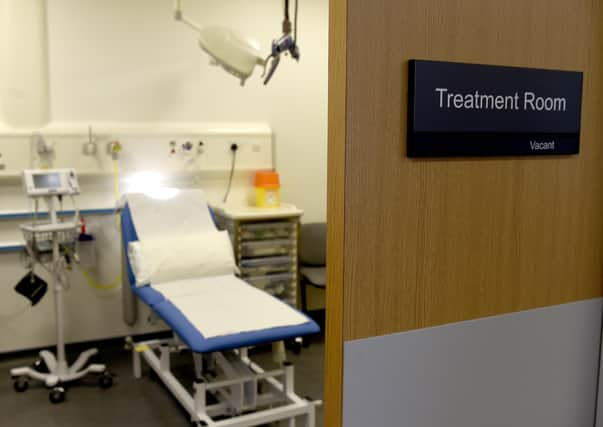NHS Scotland had capacity to cope, even at coronavirus peak


A Scottish Intensive Care Society Audit Group (SICSAG) report showed there had also been more than enough intensive care unit (ICU) beds to deal with the crisis.
By the time the first positive case of Covid-19 in Scotland was confirmed, NHS Scotland health boards were working towards doubling ICU capacity.
Advertisement
Hide AdAdvertisement
Hide AdBoards now have the capability to provide 585 ICU beds, increased from 173, and continue to plan towards being able to quadruple capacity to more than 700 beds if they are required.
Due to the extra beds, ICUs had the capacity to cope even at the peak of Covid-19 admissions in April.
Dr Gregor Smith, interim chief medical officer, said: “The hard work done to significantly increase the number of ICU beds available in Scotland ensured that there has been sufficient capacity to meet the demands placed on the health service by the coronavirus emergency.
“The plans put in place by local health boards and the Scottish Critical Care Delivery Group to prepare ICUs to deal with the pandemic meant that, even at its peak, ICUs have been operating within the capacity available.
Advertisement
Hide AdAdvertisement
Hide Ad“I’d like to thank the hard work, commitment and on-going dedication that has been demonstrated by our NHS staff across Scotland.”
The report, which provides data on how long patients were in ICU and the demographics of those patients, also showed fewer had been admitted in recent weeks.
As of May 31, the average number of patients admitted over the previous seven days was less than one a day.
Dr Rory MacKenzie, chairman of the Scottish Critical Care Delivery Group, said: “The critical care community in Scotland and the Scottish Government Health Resilience Unit have been engaging closely during the Covid-19 pandemic. That meant we could plan for expansion and react to activity and escalation of concerns in a way that provided assurance to those on the ground.”
Advertisement
Hide AdAdvertisement
Hide AdDr Stephen Cole, president of the Scottish Intensive Care Society, added: “Working with the Scottish Government and national procurement, we were able to provide the potential for more than 700 ventilated ICU beds – four times the base capacity in Scotland.
“The country has much to be proud of in the way that the pandemic has been managed.
“I’ve no doubt the death toll would have been greater without the unwavering support and close working relationship between the government and the clinical community.”
Comment Guidelines
National World encourages reader discussion on our stories. User feedback, insights and back-and-forth exchanges add a rich layer of context to reporting. Please review our Community Guidelines before commenting.